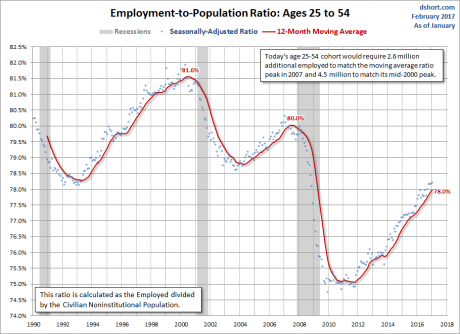Introduction
This is part one of an eight-part series on trade and how changes in policy might affect the local economy.

At the top of his agenda, Donald J. Trump, told supporters while campaigning for president was that he would bring manufacturing jobs back to the United States.
"I am going to be the greatest jobs president that God ever created," Trump said at one campaign rally.
How Trump goes about reshaping American trade policy will likely have a profound effect not just on the whole United States but also on us in Genesee County as farmers, business owners, executives, employees, and families. As America's economy goes, so goes Genesee County, so over the past few of weeks, The Batavian has interviewed several local business leaders to see how Trump's campaign rhetoric and what has emerged as his administration's policy during his first 100 days in office are shaping their views of our shared economic future.
The views range from a full embrace of Trump's "Make America Great Again" bravado to fearful skepticism that trade barriers and protectionism will lead to trade wars and ultimately financial ruin.
"I think Trump is going to be good for us in business," said Pete Zeliff, owner of p.w. minor in Batavia. "He's going to start leveling the playing field. The way trade deals have been done, the playing field isn't level. It's really hard to compete with people overseas. Their labor is so much less, so naturally, things cost less money. What Trump has talked about, leveling the playing field makes total sense to me."
Jeff Glajch, vice president and CFO for Graham Manufacturing in Batavia, said that with Graham exporting more than it imports -- about 40 percent of its sales are overseas -- he thinks some of the policies contemplated by Trump and the Republicans in Congress will not only be great for Graham, but great for America and great for Batavia. Graham employees nearly 300 people locally and Glajch, who remembers more manufacturers here 30 years ago, would like to see a resurgence in local manufacturing.
"We're encouraged by anything that favors U.S. production because I think we've been unfavored for quite a while," Glajch said. "It would be nice to see that shift back in our direction a little bit. It would be great as a country."
On the campaign trail, Trump spoke frequently of increasing tariffs, tearing up trade deals such as NAFTA (North American Free Trade Agreement) and the TPP (Trans-Pacific Partnership) and entering into a series of bilateral trade agreements (cutting deals with only one country at a time instead of deals that encompass several countries). To economists, that rhetoric sounds a lot like protectionism, and that's a dirty word to those who favor free trade.
Craig Yunker, CEO of CY Farms, said he favors free trade and is fearful of what Trump's disruption of international trade norms might do to the local and national economy.
"The issue I have with people who talk about trade as a zero-sum game is that trade is a win-win game," Yunker said. "It's a very positive thing. It leads to higher incomes for both parties if done right."
"The issue," he added, "is that when we look at the percent of the pie we get rather than the size of the pie. We see a smaller piece of the pie, but the economy has expanded. The issue of the anti-trade mentality is to look at 'what is my share of the pie?' and the free-trade mentality and a more pro-growth mentality is 'let's grow a bigger pie.' "
Rep. Chris Collins, the first member of Congress to endorse Trump for president, said Trump's trade policies, and the policies he's pursuing in Congress with fellow Republicans, are unapologetically protectionist.
"Absolutely," he said.
Collins said he's concerned about the people who have lost factory jobs. They aren't the kind of people who are going to become rocket scientists, he said, or researchers. When they can't find a job, they become depressed, and too often they wind up in service-sector jobs at lower wages.
"We need to make stuff and give people an opportunity to make a good living who have a high school (diploma) or a community college degree," Collins said.
Top graphic: The graphic shows the number of people employed as a percentage of the U.S. population. As you can see, prior to the 2001 recession, the number hit 81.6 percent. It climbed back up to 80 percent prior to the 2008 recession and has been climbing for the past five years hitting 78 percent at the start of 2017.

I'm not an expert, but my
I'm not an expert, but my understanding says that the US has been moving progressively more and more toward Free Trade and a Globalist Economy since GHW Bush [thousand points of light, and a New World Order]. In the process American jobs have regularly left and moved to other nations where costs [labor, materials, taxes] are much lower. If the US is to regain it's dominance in manufacturing and related supporting industries, tariffs to "balance the playing field" are certainly the quickest and surest way to accomplish this. My concern is, that in the exchange of creating good jobs we will also be creating much higher prices for our goods & services. Is that what is meant by "zero sum"? It's not zero sum however... the more workers earn, and the more goods and services costs, the more tax revenue the government will get [take]. Unless of course, as Pres Trump is promising... taxes are reduced. I'm not holding my breath for that.
part 2 addresses this.
part 2 addresses this.